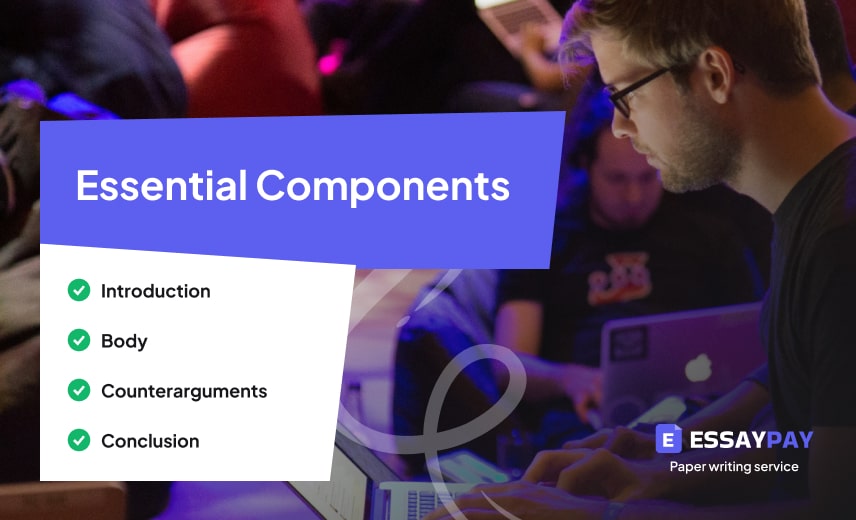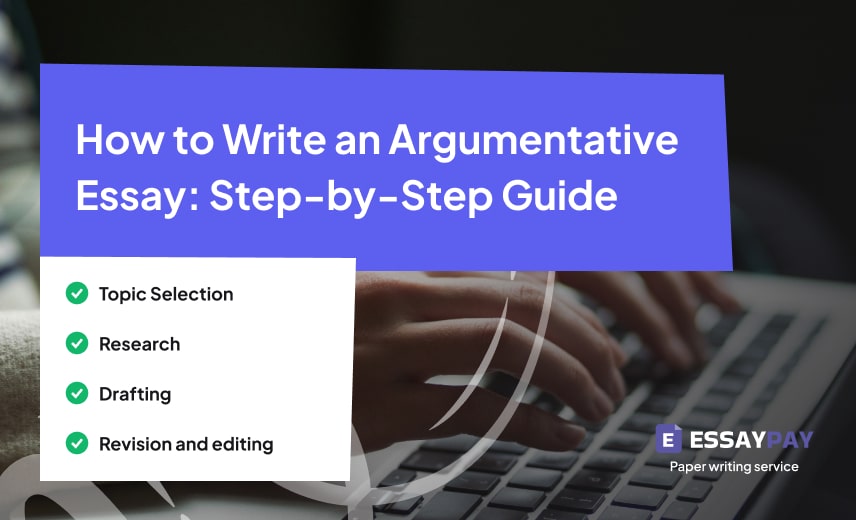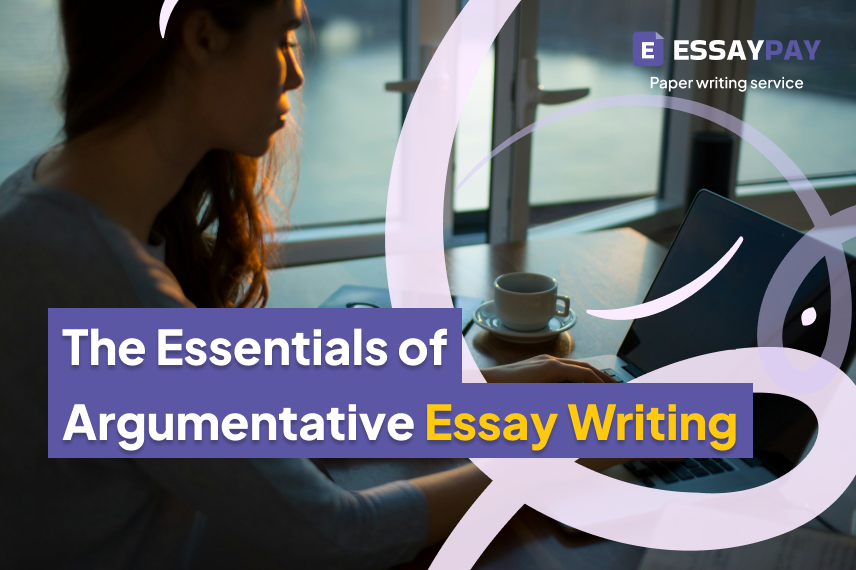I’ve just given this guide a much-needed facelift for 2025. A lot’s changed, even the expectations of what counts as decent academic writing keep shifting. (I can almost hear my past self rolling her eyes at some of the advice I used to follow.) Whether you’re in high school, college, or tackling community college classes at night, this guide is as current as they come. I’ve sprinkled in the newest tips, a handful of stats, and some of my more hard-earned lessons.
Last year, over 76% of surveyed students said they’d struggled at least once with “how to start an argumentative essay.” If you’re in that camp — no judgment. Starting is the hardest part. Seriously, if I got a nickel every time I just stared at a blinking cursor, I’d have enough for all the overpriced lattes I drink while “writing.”
What is an Argumentative Essay, And Why Does It Matter?
Let’s get into it: an argumentative essay isn’t just some boring school assignment. It’s a chance to flex your research muscles, wrangle complicated ideas, and, yes, occasionally prove your group chat wrong. At its core, it’s about exploring real issues. (You know, stuff that might come up at Thanksgiving and suddenly everybody’s yelling.) Argumentative essays ask you to look at different sides, spot weak spots, and defend your point like you actually mean it. They’re not just school stuff—they’re life stuff.
A classic argumentative essay includes a clear position, supporting evidence, and a little back-and-forth with the other side. The best ones don’t tiptoe around controversy, they dance right in.
Anatomy of a Real Argument

Okay, so you’re ready to start. Maybe you even have a killer thesis in your head already. But structure? That’s the hard part, right? Here’s how I break down the parts of an argumentative essay:
- Introduction: Where you reel readers in. This is where hook sentence examples for argumentative essay become your best friend.
- Thesis statement: Tell ‘em exactly what you stand for.
- Body paragraphs: Argument, evidence, repeat. (Not literally, but you know what I mean.)
- Counterarguments: Tackle the strongest opposing point head-on. Don’t dodge it.
- Conclusion: Wrap it up, drive your point home, and maybe leave them with something to chew on.
I’ll say it: if you skip the counterargument section, you’re missing out. Addressing the other side isn’t just a “box to check” — it’s a power move. It’s how you show you’ve done the reading and you’re not afraid of pushback.
Types of Argumentative Essays — It’s Not One-Size-Fits-All

There’s this myth that all argumentative essays are the same. Nope. I’ve used three different models over the years, and sometimes I even mix them up depending on what’s on my plate.
- Classical model: State your case, give your reasons, refute the opposition, boom — you’re done. This one’s great if you want to come out swinging.
- Rogerian approach: Sometimes, you have to meet people where they are. You acknowledge the opposition, find common ground, and build your point from there. It’s a bit more nuanced — think less courtroom, more therapy session.
- Toulmin method: All about digging into the logic. Claims, grounds, warrants, backing. If you love showing your work, this is the structure for you. Sometimes, I start with Toulmin just to untangle my own thoughts.
Hooks, Stats, and Those First Awkward Lines
Let’s be real: if you don’t hook them at the start, they’re gone. For those who asked, “how to start an argumentative essay?” — I’m right there with you. Sometimes I use a weird fact, a question, or even a personal anecdote. Here are a few hook sentence examples for argumentative essay I’ve actually used:
- “Every 60 seconds, 380 new websites go live — but does that make the internet better, or just noisier?”
- “What if your next-door neighbor decided to 3D-print a car? Should anyone stop them?”
- “When’s the last time you changed your mind about something important?”
Don’t overthink the hook. You can even draft a few and pick the one that feels right after the rest of your intro takes shape.
How to Write an Argumentative Essay: My Actual Workflow

People want step-by-step advice, so here’s mine—warts and all:
- Pick a topic that nags at you. If it bores you, it’ll bore the reader. (My unscientific rule.)
- Research with skepticism. Don’t trust the first search result. I use Google Scholar, JSTOR, and sometimes even Reddit threads to get a feel for real opinions. Keywords like “argument,” “evidence,” “debate,” and “logic” help me dig deeper.
- Outline. Even a messy one. Bullet points, arrows, fragments—whatever helps you see the big picture.
- Draft, but don’t marry your first sentences. I rewrite openings all the time. Some days the intro flows; other times I just write the body first and circle back.
- Build in transitions. These glue everything together—phrases like “on the other hand,” “meanwhile,” and “not surprisingly” are little life rafts.
- Leave time for counterarguments. Seriously, don’t skip this.
- Edit in layers. I go through for content, then for grammar, then for style. Hemingway App is great for catching wordiness, Grammarly for grammar stuff, and Google Docs for a last look.
Counterarguments: Your Secret Weapon
Let’s talk about the counterargument for a second. It’s not enough to toss in an opposing view like a sad salad garnish. Dig into it. Why do people believe this? What’s the strongest evidence against your position? The real flex is when you can honestly address the opposition — sometimes I even find myself second-guessing my stance while writing.
If you refute counterarguments with respect and facts, you actually sound smarter. Your teacher (or boss, or internet stranger) will notice.
The Not-So-Grand Finale: Argumentative Essay Conclusion
So here’s a hot take: your argumentative essay conclusion isn’t just a recap. Sure, you need to tie everything together, but you also want to give the reader one last reason to care. I like to loop back to my hook, or maybe drop a final question. No “in conclusion” needed — just finish with something that makes them think. And hey, sometimes it’s okay to leave a little ambiguity if the an argumentative topic calls for it.
Common Headaches (And How I Handle Them)
- Writer’s block? Walk away for a bit. I bake cookies or scroll TikTok. Weirdly, ideas show up when I’m not looking.
- Overly complicated sentences? Shorten them. If I can’t read it out loud without running out of breath, it’s too much.
- Weak evidence? Back to research. Sometimes I even ask friends for their take. (They’re surprisingly honest.)
Favorite Tools and Tricks
Let’s be honest: nobody writes these from scratch without an essay corrector and a little help. I lean on:
- Zotero/EndNote (reference wrangling)
- Hemingway Editor (clarity)
- Google Scholar (academic goldmine)
- Grammarly (final polish)
- Online forums — sometimes feedback from a stranger is better than ten from your mom.
Quickfire Do’s and Don’ts
- DO use strong verbs and clear language.
- DON’T rely on tired phrases.
- DO mix short and long sentences.
- DON’T skip the counterargument.
- DO take breaks and revisit with fresh eyes.
- DON’T let perfectionism kill your momentum.
Before You Go
Writing an argumentative essay isn’t about ticking boxes — it’s about figuring out what matters to you and persuading others it’s worth thinking about. Every essay, even the ones you hate, is practice for real-life debates and conversations. Next time you sit down to write, remember you’re not alone; we’re all out here wrangling commas and opinions, one paragraph at a time.
Good luck, and don’t forget to celebrate the small wins. If you need a little nudge, just remember: the perfect essay doesn’t exist. The next one is always going to be better.




